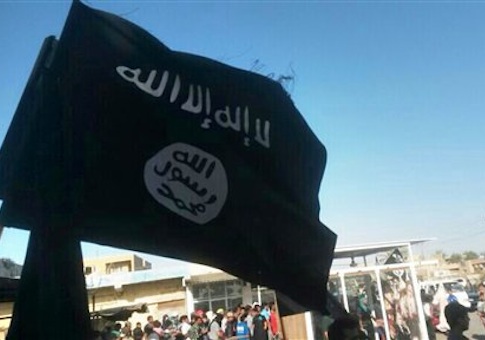Lawmakers warned on Sunday that the threat of the Islamic State of Iraq and the Levant (ISIL or ISIS) is not subsiding, but continuing to escalate.
"We need to defeat them. We had deputy assistant secretary of state, Brett McGurk, in front of [the Senate Foreign Relations Committee] on July 24th, he said that ISIL, or ISIS, is far more capable in both manpower, resources, and in fighting effectiveness than what we faced in 2007," said Sen. Ron Johnson (R., Wis.).
"They are funneling 30 to 50 suicide bombers into Iraq every month. [McGurk] said they could easily funnel those suicide bombers into Western nations. We need to be highly concerned about this. This threat is a gathering storm. It's not going away."
Johnson’s comments came during an appearance on Fox News Sunday.
While each Sunday show focused extensively on the situation in Ferguson, Missouri, the ongoing turmoil in Iraq did not go unmentioned.
Democratic and Republican lawmakers maintained that the danger of ISIL is not only very real, but presents a direct threat to the security of the United States and warrants action.
"If we allow ISIS to get bigger and bigger, they're going to plot homeland attacks on us," Rep. Eliot Engel (D., N.Y.), the ranking member of the House Committee on Foreign Affairs, told Fox News Sunday.
Rep. Adam Kinzinger (R., Ill.) told ABC’s This Week, "What we're watching in Iraq and in Syria, frankly, is the worst-case scenario for the Middle East. This cancer that’s growing; that is consuming all over the place … Today, we see [ISIL] in the tens of thousands, and they're only continuing to metastasize."
"We may be war weary," Johnson noted, "but I tell ya, ISIS, ISIL is not war weary. They're highly trained. They’re highly organized. They have been very patient setting up this caliphate, and their long term aim really is to use that base of operation against the West."
To that effect, some lawmakers called for the consideration of more military options.
"It’s something that we have to be involved in stopping with the Iraqi government, with the peshmerga. I think we're on the right start, but there's a lot more to do," explained Kinzinger.
"At the end of the day, I think the defeating of ISIS is the mission, and so I think everything has to be on the table for that end result. I understand the president doesn't want to put troops on the ground. I don't either. You can't reintroduce 200,000 American troops, but I think things like special forces embedded with the Iraqi military as the Iraqi military regrows its spine to take its country back is going to be essential and important."
Kinzinger served in the Iraq War, and was joined on This Week by fellow veteran Rep. Tulsi Gabbard (D., Hawaii). Gabbard questioned the mission of today’s efforts in Iraq.
"As we talk about whether or not there should be troops or exactly what tactical strategy should be used going forward, we're missing a critical question here, which is what is our mission? What is the United States' mission? What are we trying to accomplish here? You know, Adam and I both enlisted, joined the military after 9/11 because we heard our nation's leaders say after that attack that we would go and take out these Islamic extremists wherever they are. We would fight against those who are waging war against the United States. That stated mission after 9/11 has been lost," Gabbard said.
"We heard from White House officials last week, they said and I quote, these air strikes are not an authorization of a broad-based counterterrorism campaign against ISIS, end of quote. So if our mission is not to take out, the Islamic extremists who continued to threaten and wage war against us, then I think we’ve got a real problem here."
Engel contended that while combat troops were not ideal, doing nothing is not an option.
"I don't think we're going to put boots on the ground the way we did before in Iraq … We do have some boots on the ground right now, and frankly, we have to do everything we can to repel ISIS. I don't think we have the luxury of putting our heads in the sand and saying, ‘well it's over there and we're not going to do it.’ I think what we're doing now is effective. We’ve got to do more of it, and ultimately we may have some boots on the ground there. Not something I want, but you know what, we have bad choices and the worst choice is to do nothing."
President Obama previously stated that he would not consider placing troops on the ground.
